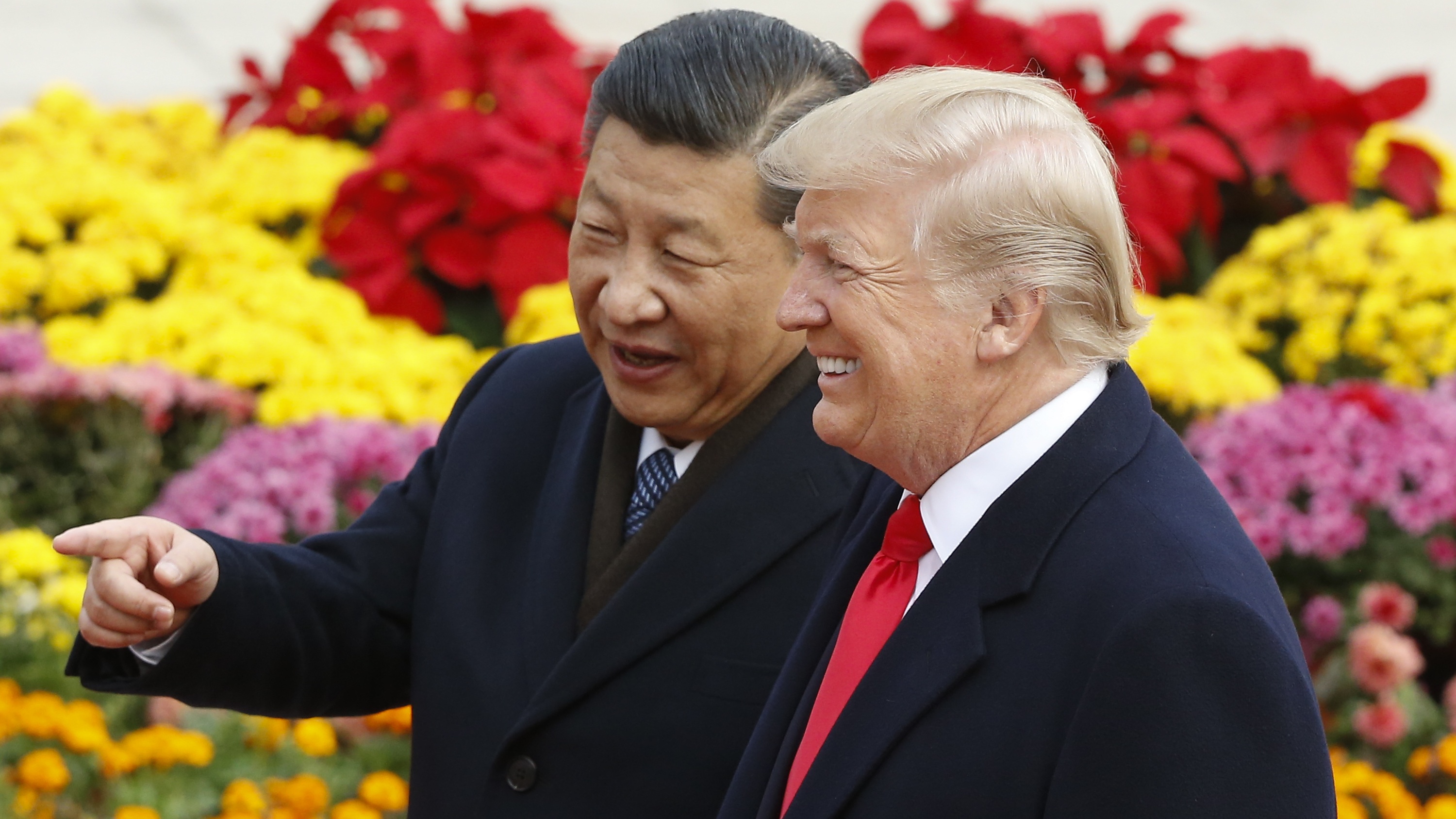Should China face sanctions over coronavirus?
Experts warn that punishing China over its pandemic response could further deter countries from revealing case statistics

A free daily email with the biggest news stories of the day – and the best features from TheWeek.com
You are now subscribed
Your newsletter sign-up was successful
In the US, pressure is mounting on President Donald Trump to take action against China for allegedly hiding the severity of their coronavirus outbreak.
One option put forward by Republican lawmakers is sanctions on Chinese leaders, reports Vox, but others have warned that this could have a negative impact on future pandemics as well as international relations.
What has China allegedly done?
The Week
Escape your echo chamber. Get the facts behind the news, plus analysis from multiple perspectives.

Sign up for The Week's Free Newsletters
From our morning news briefing to a weekly Good News Newsletter, get the best of The Week delivered directly to your inbox.
From our morning news briefing to a weekly Good News Newsletter, get the best of The Week delivered directly to your inbox.
Beijing has faced questions over its part in the global death toll and economic costs incurred due to the novel coronavirus outbreak which emerged in Wuhan, China, late last year and swelled into a global pandemic.
So far, the virus has infected more than 2.5 million people worldwide and killed more than 175,000, with economies suffering as a result of lockdown measures shuttering businesses across the globe.
Ford Fu-Te Liao, a research professor at Taiwan-based Academia Sinica, told Anadolu Agency this week that China may have violated international health regulations as it failed to report to the WHO on time despite sufficient information.
This means that - under international law - countries who have suffered are entitled to compensation by China, Anadolu says.
A free daily email with the biggest news stories of the day – and the best features from TheWeek.com
This claim was backed up by Tom Ginsburg, international law and political science professor at the University of Chicago, who told the news agency: “Under international law, China is responsible for any harm it caused to other countries, whether through acts or omissions.
“But the key question is how to get any reparation, and whether China can be found liable in a court,” he added. “It is true that China suppressed information internally about the virus, and informed the WHO (World Health Organisation) later than it could have. But the WHO Treaty only requires a country to report to the WHO, not to other countries directly.”
–––––––––––––––––––––––––––––––For a round-up of the most important stories from around the world - and a concise, refreshing and balanced take on the week’s news agenda - try The Week magazine. Start your trial subscription today –––––––––––––––––––––––––––––––
Who is suggesting sanctions?
According to Newsweek, China's alleged “obfuscation on coronavirus and lack of cooperation during the early phase of the crisis” have prompted the White House to enact “some kind of punishment” on Beijing, adding that “as usual, economic sanctions are leading the discussion”.
The news site adds that during an appearance on Fox News last Thursday, Republican Senator Lindsey Graham recommended that the Trump administration and Congress “sanction China to get them to change their behaviour”.
Speaking on Tuesday, former Australian prime minister Kevin Rudd told BBC Radio 4's Today programme that it was time to give WHO the power to sanction countries that violate international obligations on health, such as failing to report on an epidemic early.
Would it work?
China has strongly rejected allegations that it is to blame for the pandemic.
“The virus is a common enemy to all mankind and may strike anytime, anywhere,” Geng Shuang, a spokesman for China’s Ministry of Foreign Affairs, said on Monday. “Like other countries, China is also a victim, not a perpetrator, even less an accomplice of Covid-19.”
To others, the idea of sanctions is a pointless and potentially harmful one.
Speaking to Vox this week, Jacob Stokes, senior policy analyst in the China programme at the US Institute of Peace, said the “overriding goal of any response” should be “preventing another pandemic”, and that “policymakers should avoid creating incentives for any country, including China, to avoid reporting a potential outbreak in the future for fear of being blamed or punished”.
“Imposing sanctions on Chinese officials or allowing victims to sue China for Covid-19-related damages could dissuade countries from sounding the alarm early next time,” he said.
Furthermore, such measures may not currently be legal, according to WHO rules. According to Ginsburg, bilateral and multilateral sanctions are often used in international law, and thus it is possible for a state to impose sanctions on China. But he adds that such sanctions “would themselves have to be legal under the World Trade Organisation Treaty” by being “based on health concerns”.
He adds that if the measures are purely meant to “punish China for its wrongful actions”, they would technically be illegal.
-
 How to Get to Heaven from Belfast: a ‘highly entertaining ride’
How to Get to Heaven from Belfast: a ‘highly entertaining ride’The Week Recommends Mystery-comedy from the creator of Derry Girls should be ‘your new binge-watch’
-
 The 8 best TV shows of the 1960s
The 8 best TV shows of the 1960sThe standout shows of this decade take viewers from outer space to the Wild West
-
 Microdramas are booming
Microdramas are boomingUnder the radar Scroll to watch a whole movie
-
 A Nipah virus outbreak in India has brought back Covid-era surveillance
A Nipah virus outbreak in India has brought back Covid-era surveillanceUnder the radar The disease can spread through animals and humans
-
 The stalled fight against HIV
The stalled fight against HIVThe Explainer Scientific advances offer hopes of a cure but ‘devastating’ foreign aid cuts leave countries battling Aids without funds
-
 Obesity drugs: Will Trump’s plan lower costs?
Obesity drugs: Will Trump’s plan lower costs?Feature Even $149 a month, the advertised price for a starting dose of a still-in-development GLP-1 pill on TrumpRx, will be too big a burden for the many Americans ‘struggling to afford groceries’
-
 Covid-19 mRNA vaccines could help fight cancer
Covid-19 mRNA vaccines could help fight cancerUnder the radar They boost the immune system
-
 Can TrumpRx really lower drug prices?
Can TrumpRx really lower drug prices?Today’s Big Question Pfizer’s deal with Trump sent drugmaker stocks higher
-
 The new Stratus Covid strain – and why it’s on the rise
The new Stratus Covid strain – and why it’s on the riseThe Explainer ‘No evidence’ new variant is more dangerous or that vaccines won’t work against it, say UK health experts
-
 Why are autism rates increasing?
Why are autism rates increasing?The Explainer Medical experts condemn Trump administration’s claim that paracetamol during pregnancy is linked to rising rates of neurodevelopmental disorder in US and UK
-
 RFK Jr. vaccine panel advises restricting MMRV shot
RFK Jr. vaccine panel advises restricting MMRV shotSpeed Read The committee voted to restrict access to a childhood vaccine against chickenpox